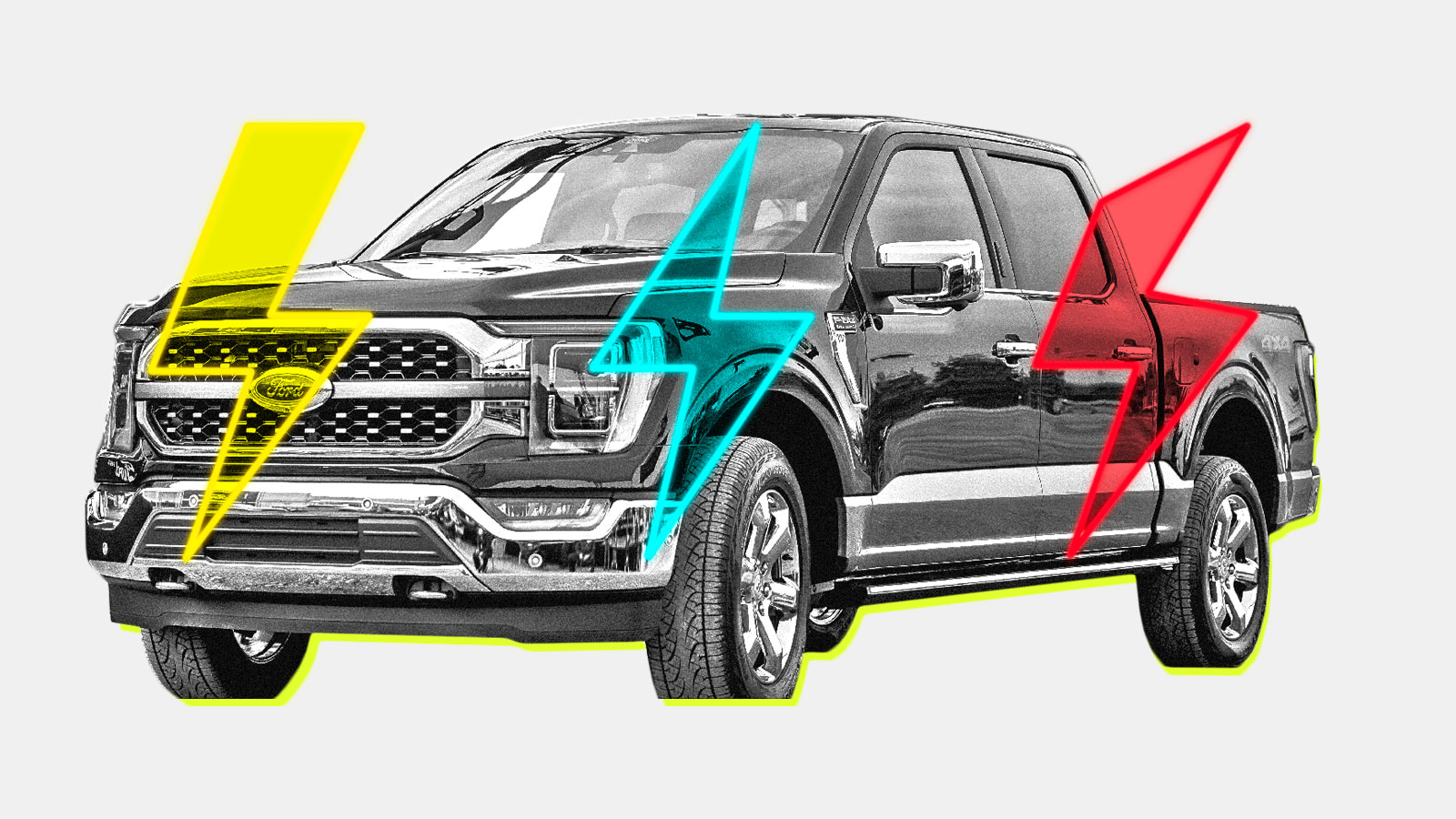Imagine an electric vehicle driver. You’re probably picturing an environmentally minded baby boomer, kids grown up and moved away, behind the wheel of a bright blue Nissan Leaf somewhere in Connecticut. Or you’re visualizing a 40-something tech bro in San Francisco who just bought a flashy Tesla Model 3 because, well, he likes Elon Musk and he likes cars.
Now, Ford wants you to picture a new type of EV driver: one who rolls around in a 400-horsepower pickup truck.
The American automaker unveiled its all-electric F-150 Lightning truck this week with much fanfare and a surprise visit from President Joe Biden himself. “My name is Joe Biden and I’m a car guy,” the president said at an appearance in Dearborn, Michigan. He also zoomed around a racetrack in the F-150, trailed by anxious secret service agents.
Ford and the Biden administration — which has promised to spend $174 billion on electric vehicles — are banking that consumers who have previously shown little interest in EVs are going to be swayed by seeing the cars they love in new, all-electric clothing. It’s the same bet being made by General Motors, which has already unveiled its monstrous Hummer EV, as well as Chevy, which is planning to release an all-electric version of the Silverado.
So are the trailer-towing, pickup truck-driving residents of Middle America going to adopt these EVs? It looks like a long shot: Only 2 percent of all cars sold in the U.S. today are electric, and most of those are sold in blue states like California, Washington, and Oregon.
But the F-150 is a bit of an icon. Introduced in 1975 as a square-jawed, boxy vehicle that quickly found its way into the Mad Max franchise, the F-150 has been the most popular vehicle in the U.S. for 39 years. In 2018 alone, Ford rolled almost a million F-150s off the lot; according to a 2016 BlueBook analysis, it’s the most-sold car in a huge swath of states from Idaho to Georgia. If any car could get reluctant Americans to hop on the EV train, the thinking goes, it’s this one.
The sticker price might make the difference. The base model of the F-150 Lightning comes in at $39,974; but, assuming Ford keeps selling cheaper gas-powered and hybrid versions, many consumers still may not want to make the jump to all-electric. The $7,500 federal tax credit for EVs could help, but buyers are still vulnerable to stickershock. (Attempts to renew the tax credit — and get funding from Congress for other EV projects — have run into roadblocks in Congress.) And many of the states where Ford trucks are most popular are also states that have very few electric charging stations, which could seem risky to drivers eyeing the Lightning’s 230-mile range.
It’s not every day, however, that you see a 78-year-old president climbing out of an all-electric pickup truck and talking about beating China at the EV game. After four years of Trumpish isolationism, Biden has promised the U.S. will rejoin the fight against climate change — but in a uniquely American way, with cars, corporations, and “good-paying, union jobs.” That might be exactly the message the country’s pickup-truck drivers need to hear to get on board with EVs. In 2022, when the F-150 Lightning goes on sale, you’ll find out if it worked.



